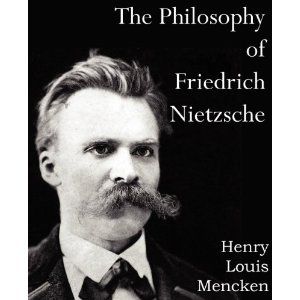1896年,当弗里德里希•尼采被授予巴塞尔大学古典文献学教授职位的那一刻,他喜不自禁,欢歌雀跃。那会他才24岁——比25岁就成为悉尼大学希腊语教授的伊诺克•鲍威尔还小一岁!尼采期待着一份前途无量的学术生涯!
三年后,他呈现了六场演讲,演讲的主题是——“反思教育:论我国教育机构之未来”,当时他就已经流露出反思醒悟的迹象。他的教学职责包括在当地的大学预科(就相当于德国的高中)工作六小时,然而,他对那里所见所闻一点儿都打不起兴趣。对于每一个热衷于跟风议论英国学校垮掉的标准的人来说,尼采的抱怨对他们不过是故技重施。因为前车之鉴可以追溯到1969年问世的“黑皮书”,甚至更久之前,
施教者能力有限,受教者认知不够,课程设置甚至远不如杂志和报纸上,给平民老百姓看的“文化版面”。不由说分,尼采被所谓的高级中学,所提供的古典教育要求彻底激怒了。
我从未在德国中学发现任何可以被称为“古典教育”的蛛丝马迹,对此尼采嗤之以鼻。与他自己所接受的“真正教育”相去甚远——虽然,罅隙时分,有的人会带着乐观心态回顾自己的学生时代,但尼采坦言之,该黄金时代的存在还不足区区十年。
据哲学家说,终其究竟,其根源自于,德国中学在试图与国家工作人员的不断增长的需求保持同步而扩张得过于快了。他们试图开展大众教育,而非精英教育,而这不可避免的导致了对普通学生智能荒谬激进化的告急。
他抱怨道:他们认为每一个学生都拥有自由性,允许对最关注的人和事表达意见,而对于年轻人判断力的独立性,“真正的教育”会穷极一生地去鼓励,而不是对天才一味地施以桎梏。
当尼采抱怨德国中等教育的衰落,他不仅表示出对希腊诗人和哲学家足够的尊重,而且敬慕歌德和席勒,尤其是他们的语言运用能力。“如今,每个人都是如此机械麻木、庸俗鄙陋着使用德语,以至于德语只能存活于德国报纸化的时代”他朝记者打趣道,同时做了一个轻蔑无奈的表情,“只有当德国精神得到深入彻底的革新,那么革新后的学校才能重获新生!”
尼采的“反教育”演讲言论中,很多处都采取了夸张的武装呼吁,所以可以想象,当人们看到一个27岁的年轻人谴责德国教育的衰退,观众是如何的一番吃吃窃笑。但这一次人们错了。这番言论中,包含着一个强有力的批判原则,即,在世界各地的现代民主国家,普遍的公共教育将被很快建立。考虑到公共财政支出的成本,教育的目标是不是不可避免的将成为国家诸多目标下的附庸?如果学校被期望去教育所有的孩子,而不只是那些具备特殊能力的孩子时,如何避免课程的贬值?
如果这些问题继续争论不休,可以肯定的是,因为尼采在这六个讲座中所提出的问题至今还未得到满意的答案。
(于路译)
附上英语原文如下——
When Friedrich Nietzsche was offered a professorshipin classical philology at the University of Basel in 1869 he was so happy heburst into song. He was only 24 at the time — a year younger than Enoch Powell,who became a professor of Greek at the University of Sydney aged 25 — andlooked forward to a brilliant academic career.
Three years later, when he delivered the sixlectures contained inAnti-Education: On the Future of Our Educational Institutions, he was already showing signs ofdisillusionment. His teaching duties included six hours at the local gymnasium— the German equivalent of a secondary school — and he wasn’t impressed by whathe found there. To anyone who’s followed the debate about failing standards inBritain’s schools that dates back to the publication of the first ‘BlackPapers’ in 1969 and probably long before that, Nietzsche’s complaints will havea familiar ring to them.
The teachers possess ‘limited gifts’, the studentsare of a ‘low level’ and the curriculum owes far too much to ‘the plebeian“culture pages” of magazines and newspapers’. Nietzsche is particularlyincensed by the claims of the gymnasiums to be providing a classical education.
‘I have never once found in the German gymnasium asingle gossamer thread of anything that can truly be called “classicaleducation”,’ he harrumphs. It’s all a far cry from the ‘true education’ hereceived — although, unusually for someone looking back at his own schooldaysthrough rose-tinted spectacles, Nietzsche is talking about a Golden Age thatexisted less than ten years earlier.
The fundamental problem, according to thephilosopher, is that German secondary schools have expanded too quickly in anattempt to keep pace with the growing demand for state functionaries. They’retrying to educate too many people, rather than the intellectual elite, and thishas inevitably led to the emergence of ridiculous, progressive ideas about theintellectual abilities of ordinary students.
He complains:
They treat every student as being capable ofliterature, as allowed to have opinions about the mostserious people and things, whereas true education will strive with all itsmight precisely to suppress this ridiculous claim to independence of judgmenton the part of the young person, imposing instead strict obedience to thesceptre of the genius.
When Nietzsche complains about the decline of Germansecondary education, he doesn’t just mean that insufficient deference is shownto the Greek poets and philosophers, but also to Goethe and Schiller,particularly their command of language. ‘Everyone nowadays automatically speaksand writes in a German so vulgar and bad that it could only exist in an age ofnewspaper German,’ he scoffs, one of several disparaging references tojournalism. ‘A true purification and renewal of the gymnasium can proceed onlyfrom a deep and violent purification and renewal of the German spirit.’
Much ofAnti-Educationis taken up with these bombastic calls to arms and you can imagine his audiencesniggering at the spectacle of an excitable 27-year-old decrying the decline ofGerman education; but it would be wrong to dismiss it out of hand. At itsheart, the book contains a powerful critique of the principle of universalpublic education that was soon to become established in modern democracies allover the world. Given the cost to the public purse, isn’t it inevitable thatthe aims of education will become subordinate to those of the state? And ifschools are expected to educate all children, not just those of exceptionalability, how do you avoid the debasement of the curriculum?
If these issues continue to be debated today, as they surely are, that is partly because the questions posed by Nietzsche in these six lectures have yet to receive any satisfactory answers.
